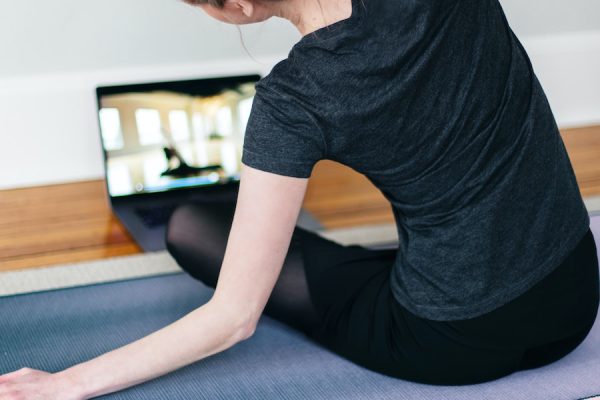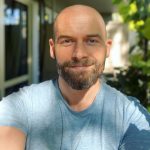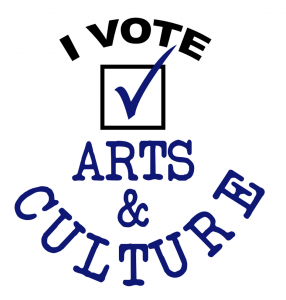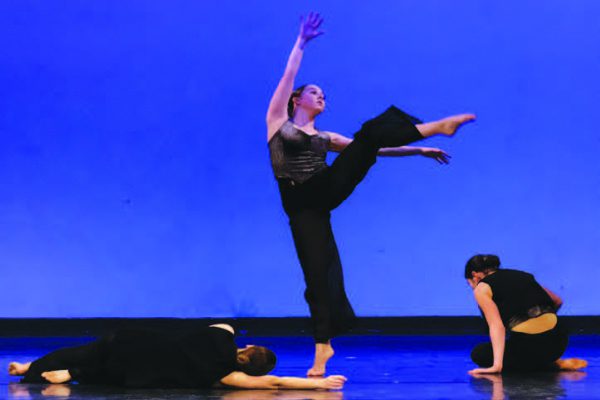What if our first impression of someone was through touch alone? Celebrated dance-filmmaker Marites Carino has put aside her camera in order to answer that question. Her newest project, HANDSHACK, is an interactive installation that sets up a blind “hand date” between strangers, a handshake turned improvised pas de deux. The experiment premiered at the Remai Modern in Saskatoon earlier this year.
Carino spoke to The Dance Current about the inspiration behind her project, meditating on what physical touch means to us today.
~
Anne Dion Where did you get the idea for HANDSHACK?
Marites Carino Around the time the idea was forming, I was having major problems with my skin. I had really bad eczema all over my hands and my body, and I remember shaking hands with somebody that I didn’t know and wishing I could just disappear. I was so embarrassed.
I’d been doing dancefilms for a while, and because I come from a background in broadcast journalism, I was starting to miss doing interviews with people. I knew I wanted to do a project that involved bringing different cultures together in a context that would show the cultural differences and share them. I’m also one of those people who hates it when I’m with someone and they’re on their cellphone. Because of the rise of technology, the opportunities for physical contact are reduced because we’re having contact with each other virtually. And the old-timey kind of handshake is becoming almost obsolete, like the telephone booth. So all of these things were milling around in my head.
Around that time, I had a friend visit me from out of town, and I said to them that I had this crazy idea: what would it be like to have a prolonged handshake without seeing each other? And what if that was how you’d get to know each other? So I took them into my living room, blindfolded them and started making up directions, and that’s where the project started.
AD What was the construction process like, building on that idea?
MC I had the idea for a documentary, a kind of dancefilm. I did a hybrid documentary/movement/experimental film. I got a production residency and the Dance On Screen grant from the Canada Council, and I made a film. I curated people from different walks of life. That was important. I wanted to have different types of people from different cultures. I had a movement facilitator, Mariko Tanabe. She does the MCing and stuff. We had the residency for a week, during which we built the structure. And I had participants who all had different relationships to touch: I had about four dancers, a palm reader, someone who worked with palliative care patients, a body piercer, an acupuncturist, a kid. It was a hard sell. It was kind of a weird project. It’s like a blind hand date with a stranger! But I managed to convince around twenty people [to participate].
A lot of the feedback I got from people was that it’s interesting because we don’t think about touch that much. I’d say in general, North America is not a touching culture. I actually started doing this project in Barcelona when I was there for a festival: I got some people together and I did a test drive, because different cultures react differently to touch, and that was the cultural element that I felt like I wanted to incorporate into a new project because I’d just been doing movement-based films. Your inner choreographer comes out when you do this experience because the way you interact with people is highly dependent on who you are as a person. Are you a touchy-feely person in general? What’s your cultural background? What are you feeling in that moment?
AD Would you say that HANDSHACK is particularly relevant in today’s climate?
MC I think there’s potential for this project because it’s so timely. A comment that I get a lot is that with movements like #MeToo and the ‘build the wall’ rhetoric, this project is a great way to break down barriers between people because you don’t have those visual cues like age, gender, all of that stuff. People often told me that it was so great to have a safe space where contact is invited and artistic. I think it’s a relevant project right now, given the times. It speaks to a lot of people and it relates to technology too! One of my questions for participants is, ‘In a day, do you touch more people or technology?’ Mostly it’s technology!
Another thing people have said over the course of its short life is that we don’t realize what our touch says about ourselves. Somebody told me once that he didn’t realize his touch was so gendered. When I asked him what he meant, he said that as soon as he realized he was paired up with another guy, they started doing masculine movements like fist-bumping and high-fiving. It’s so interesting to see how people interact.
It’s also amazing how much you can tell about a person, not by their hands but by how they move them. You can feel the person in the way that they move. You’re getting to know each other through basically a blind structured improvisation for hands. The participants have headphones on, and they’re listening to me giving them movement guidelines; there’s a structure to it. I’ve made a kind of narrative arc for the encounter to help make it interesting. People tend to be glad that there’s a bit of structure. But it’s amazing too how a lot of the footage actually looks like dance! These are mostly non-dancers doing it, but you can tease out dance from anywhere, from anybody.
AD What’s coming up next for HANDSHACK?
MC Since I have a background in journalism, from the beginning of this project I’ve wanted to make a documentary on the science of touch. There’s an international dancefilm festival called RIFF just outside of Oslo in Norway. My film Hands On got an honourable mention, and the prize is to do a two-week residency there. So I have the HANDSHACK script on these MP3 players, and I want to make a kind of site-specific community outreach project with it, going all over the world and doing versions of this with different cultures. Every time I do it in a different country, the background will be different. The instructions will be the same, but everybody’s cultural interpretation will be different.
Learn more >> maritescarino.com/the-hands-on-project
This interview has been edited for clarity and brevity.
Tagged: All, On the Ground, All






